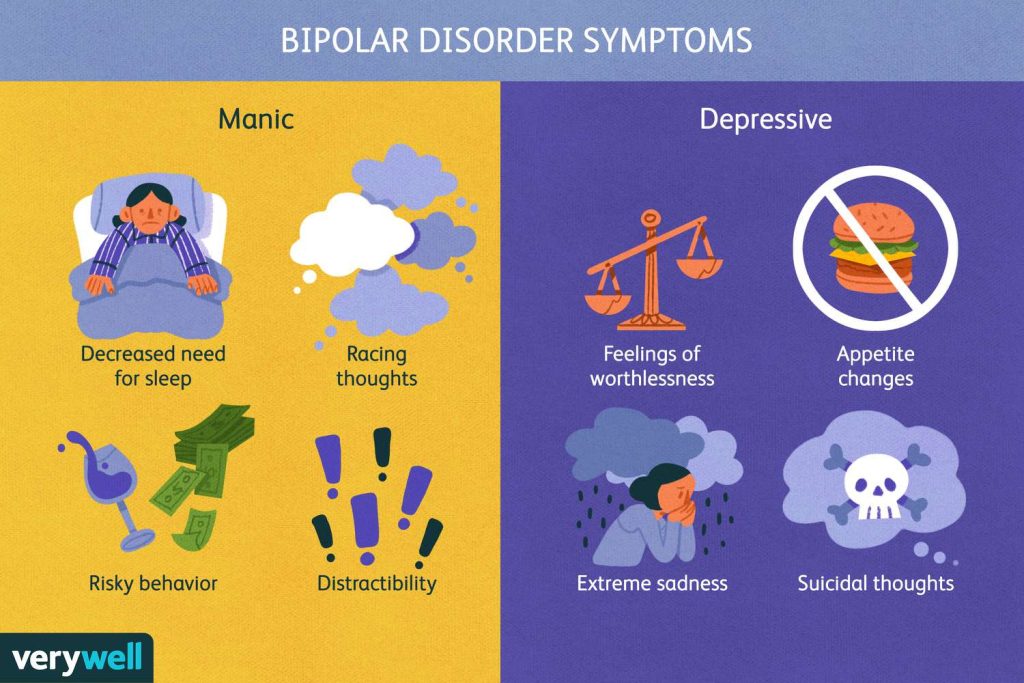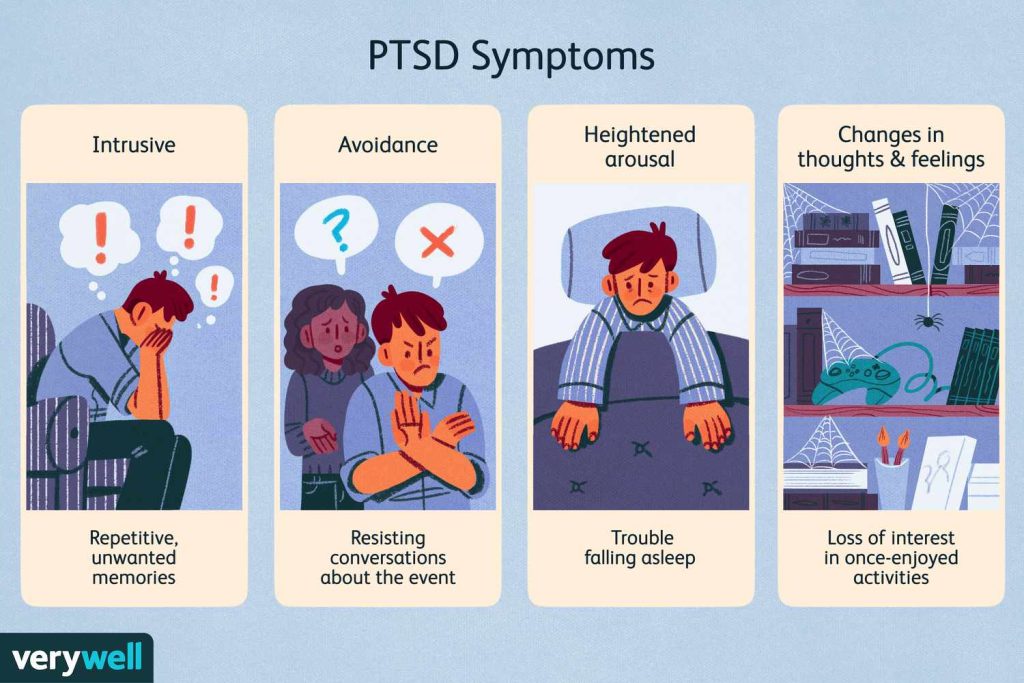Bipolar Disorder
Bipolar disorder is also known as manic-depressive illness and is a brain disorder that causes unusual shifts in mood, energy, activity levels, and the ability to carry out day-to-day tasks. These moods range from periods of extremely “up,” elated, and energized behavior (known as manic episodes) to very sad, “down,” or hopeless periods (known as depressive episodes). Sometimes a mood episode includes symptoms of both manic and depressive symptoms and is termed as an episode with mixed features. People experiencing an episode with mixed features may feel very sad, empty, or hopeless, while at the same time feeling extremely energized.

Post Traumatic Stress Disorder

Some people who have experienced a shocking, scary, or dangerous event develop PTSD.
It is natural to feel afraid during and after a traumatic situation. The “fight-or-flight” response is a typical reaction meant to protect a person from harm and thus nearly everyone will experience a range of reactions after trauma. Most people recover from initial symptoms naturally but those who continue to experience problems may be diagnosed with PTSD and such people may feel stressed or frightened even when they are not in danger.
It is natural to feel afraid during and after a traumatic situation. The “fight-or-flight” response is a typical reaction meant to protect a person from harm and thus nearly everyone will experience a range of reactions after trauma. Most people recover from initial symptoms naturally but those who continue to experience problems may be diagnosed with PTSD and such people may feel stressed or frightened even when they are not in danger.

